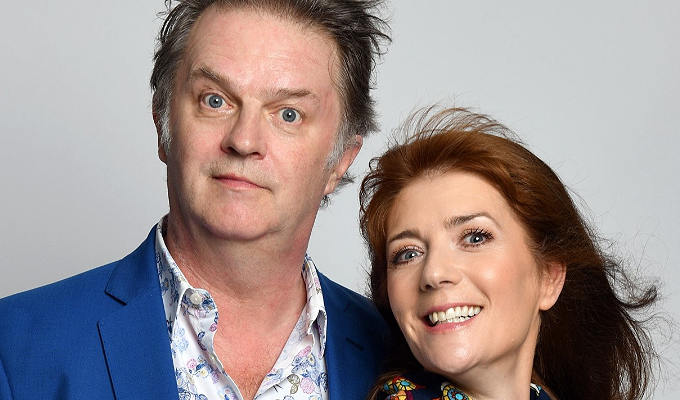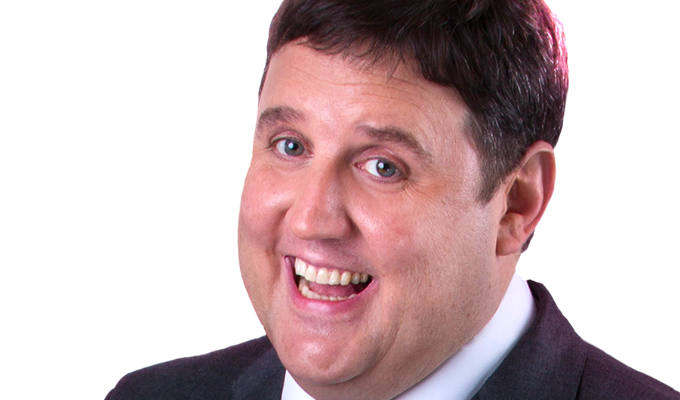Pilot error
Joe Milnes gripes about sitcom writing competitions
Disclaimer: This piece stems primarily from a place of bitterness and resentment, which as any two-bit therapist could explain, is really a manifestation of feelings of failure and non-self fulfilment.
In the past year, I have submitted two comedy pilot scripts for separate competitions. It’s a hobby beyond all else. Yet, the system behind both competitions, and presumably the commissioning of sitcoms as a whole, has frustrated me to the point of questioning whether there is a problem at grass-roots level.
First up is the BBC’s Jesting About 2 competition, which launched ten months ago, aimed specifically at discovering new comedy writing talent in the North East. Their brief for wannabe writers was the following:
‘We are making the development of new and top-drawer scripted comedy a high priority. The shows need to be loud, noisy and mainstream. Think My Family, My Hero, Green Green Grass. They should also have longevity; think, what would Series 3, Episode 4 be about? Most importantly, they should be full of lots of visual humour (Ab Fab, Only Fools, Fawlty Towers) and great one-liners (Not Going Out).”
Not asking for much is it? A top drawer loud, noisy, mainstream comedy with great one-liners AND packed with visual humour. Kind of like Fawlty Towers meets Not Going Out meets three of the most widely reviled comedies in the Beeb’s history, yeah? In one confused, schizophrenic 30 minute pile, yeah? Cool. Not sure how the writer can demonstrate series longevity when you only accept ten-page samples, rather than a completed pilot, but I can base it on my own idea, right?
Um, wrong. It continues:
‘We are only inviting ideas based on the following two briefs: A new project for Joe Tracini and Miriam Margolyes that builds on the chemistry they had in Coming of Age. A link to the episode can be seen at the followi...’
NOT WATCHING THAT, WHATS THE OTHER OPTION?
‘or Toy Boy. The story of a 22-year-old who hooks up with a successful 48-year-old divorced mother of two.’
Recognise that? If it isn’t what clearly evolved into Me And Mrs Jones. You know, that loud, mainstream, Fawlty Towers evoking sitcom crammed with one liners that gave a leg up to its fledgling Geordie writers Fay Rusling and Oriane Messina who don’t have Green Wing, Campus and a writing career spanning a decade to their name.
What a complete mess.
Which brings us to Shortlist magazine’s competition which ran last month for Comedy Central and Big Talk Productions. A less stringent approach from them, they invited any premise but again only accepted sample scripts between three and ten pages.
The warning signs were evident when the results were postponed by a fortnight. The level of interest was obviously unanticipated and the reading process is unlikely to be as thorough as one would hope. A total of 2,136 samples were read over a month by four people who all have demanding full-time jobs besides trawling through hopeless submissions from deluded wannabe writers.
Obviously, I wasn’t selected. Perhaps what I submitted to Shortlist’s competition was the worst pilot since John Denver. Perhaps it was as unfunny, crass and tasteless as that very analogy. Nevertheless, even if the competitions had been organised better the ten-page sample accepted as competition standard remains too restrictive. You can’t showcase anything beyond basic premise and character introduction in ten minutes.
The script reading system should ape that of Hollywood movies; you get ten pages. If that impresses, you get thirty pages. If that works, the whole script (90/150 pages) gets read. If that’s impressive then you get feedback.
It’s a system that still allows readers to chuck the script after one page if they hate it, but more importantly permits them to read a script through to completion and see if the writer can craft intriguing, inventive narrative structure beyond: ‘This is Mrs X, she works in a bank’ plus a few pages of dialogue. The smaller the sample, the harder it becomes to discern talent.
Ten pages needs to be the minimum, not the maximum. Have a fantastic idea that cleverly ties three seemingly separate characters together in the final third? Tough. Want to create a Frasier style farce that builds up over the half-hour to a hilarious final payoff? Better put that in a footnote.
Premises are easy. You can check the 40 winning sitcom titles on Shortlist’s website for that. There’s Funny Girls aka ‘I’ve just watched Girls’ here’s my go, 2:2, aka ‘Fresh Meat was good wasn’t it, let’s have another one’, Three’s a Tribe AND Four’s Company, (come on Big Talk you already have Threesome), and the obligatory Facebook one.
The problem could ultimately be that pilots and pitches are an inconsistent indication of a comedy’s quality. My favourite comedies are almost exclusively American, and a genre of whip-fast, reference-heavy sitcom has emerged that simply doesn’t exist on this increasingly septic isle.
America is neither the land of BBC Three, nor the home of Dave. Shows like Parks And Recreation, Happy Endings, Party Down, 30 Rock, Community, Archer, Arrested Development and Louie are examples of the best comedies around. Yet the first ten minutes of each series’ pilot episode is, at best, merely a series of exposition heavy, comedy light introductions; to premise, characters and setting.
Would you dare make a pitch in Britain for a show about six friends where nothing happens, they just sort of hang out and converse in mass-audience-alienating pop culture jargon? Would the corporations take any interest in a three page script which consisted of nothing but a black and white montage of a jaded middle-aged man watching a tramp wash in a subway station, set to frantic violin music?
The quality of the aforementioned shows shines through, even in the pilot episodes, but only when the show has been established which takes, that’s right, about ten pages.
Britain needs to take some risks, but all signs point to a comedically sterile future. Then again, maybe I’m just bitter.
Published: 2 Nov 2012






